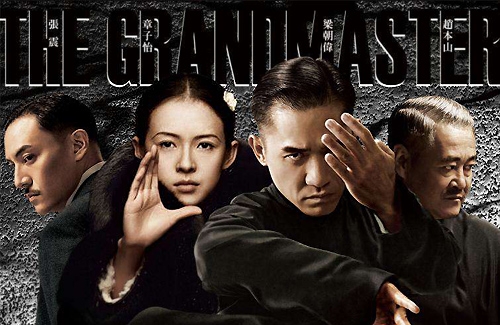I just got home from watching The Grandmaster and can’t wait to tell you about the experience. My house is clean and quiet inside, but thunder, gathering winds, and the low sound of a train punctuated by a whistle seep through the windows and walls to distract me. The branches are undulating, and each movement releases yellow leaves signaling the shift from one season to another.
Life has four seasons. That is one of the themes cutting through Kar Wai Wong’s majestic and masterful film about martial arts master Ip Man (the teacher who trained Bruce Lee), and the film is one of the most poetic I’ve seen in years. No doubt, the lyricism and loveliness of the images coupled with the precision of the words is why I’m drawn to the images outside my glass doors as I think about this film and all it unleashes inside my head.
One person knows my cinematic likes and dislikes better than anyone, and about a week ago, I got this message from him:
Believe it or not, I’m suggesting you see The Grandmaster, Wong Kar Wai’s new film that looks like a big martial arts period piece but is really something quite different. And it’s gorgeous….
Gorgeous is the right word because it’s the best word we have, but I think the film is beyond gorgeous.
There are three things about this movie that appeal to me on a very deep level, and none of them have anything to do with martial arts.
First, this is a bold, feminist statement. When one accomplished fighter says to the daughter of the teacher he has dishonored, “You are just a woman. You don’t count,” we know he is going down. We know this because of her skill as a fighter, the honor she has demonstrated, and because he is wrong. I should require this film for the Introduction to Women’s and Gender Studies course I’m team-teaching this semester!
Second, this is one of the most romantic films I’ve seen in years. Perhaps it is the most romantic (in at least a couple senses of the word) film I’ve seen since The Secret In Their Eyes. Love, with all of its mysteries, fascinates and confounds me, but there is more to the characters in this film and their connections than can be rightly said. This, to me, is an example of how cinema can, at times, transcend other art forms by going beyond the spaces controlled by words alone or by images alone to combine the very best of both.
Third, there is the form. My own filmmaking tends toward the spare and understated, and I do have a predilection for that style in narrative features, too, but there are exceptions, films of such formal accomplishment that they go beyond and go deeper so that the power, precision, and indelible beauty of these rare films is undeniable.
Unrequited love is sad…and perfect…perfectly sad. As one character says to another late in the film, “To say there are no regrets in life is just to fool yourself.” I often say that I don’t have regrets and don’t spend an inordinate amount of time reliving the past inside my head. Maybe I am fooling myself? And, maybe I don’t believe in fate except when I do.
As for The Grandmaster: I love it, I love it, I love it! Just as I write this, the rain cascades outside in a steady downpour that we need. Maybe it’s not as beautiful as Phillipe Le Sourd’s cinematography, but little is.
Exhale.
I want to go back and watch The Grandmaster again. Right now…
